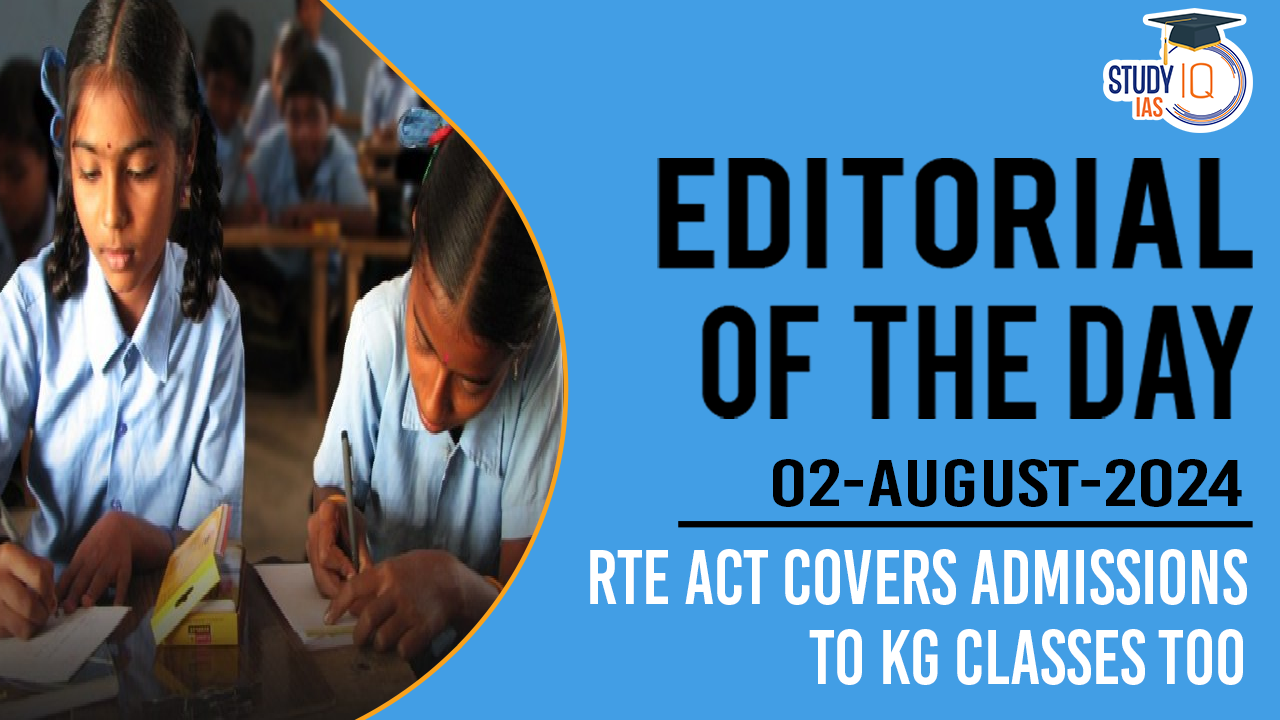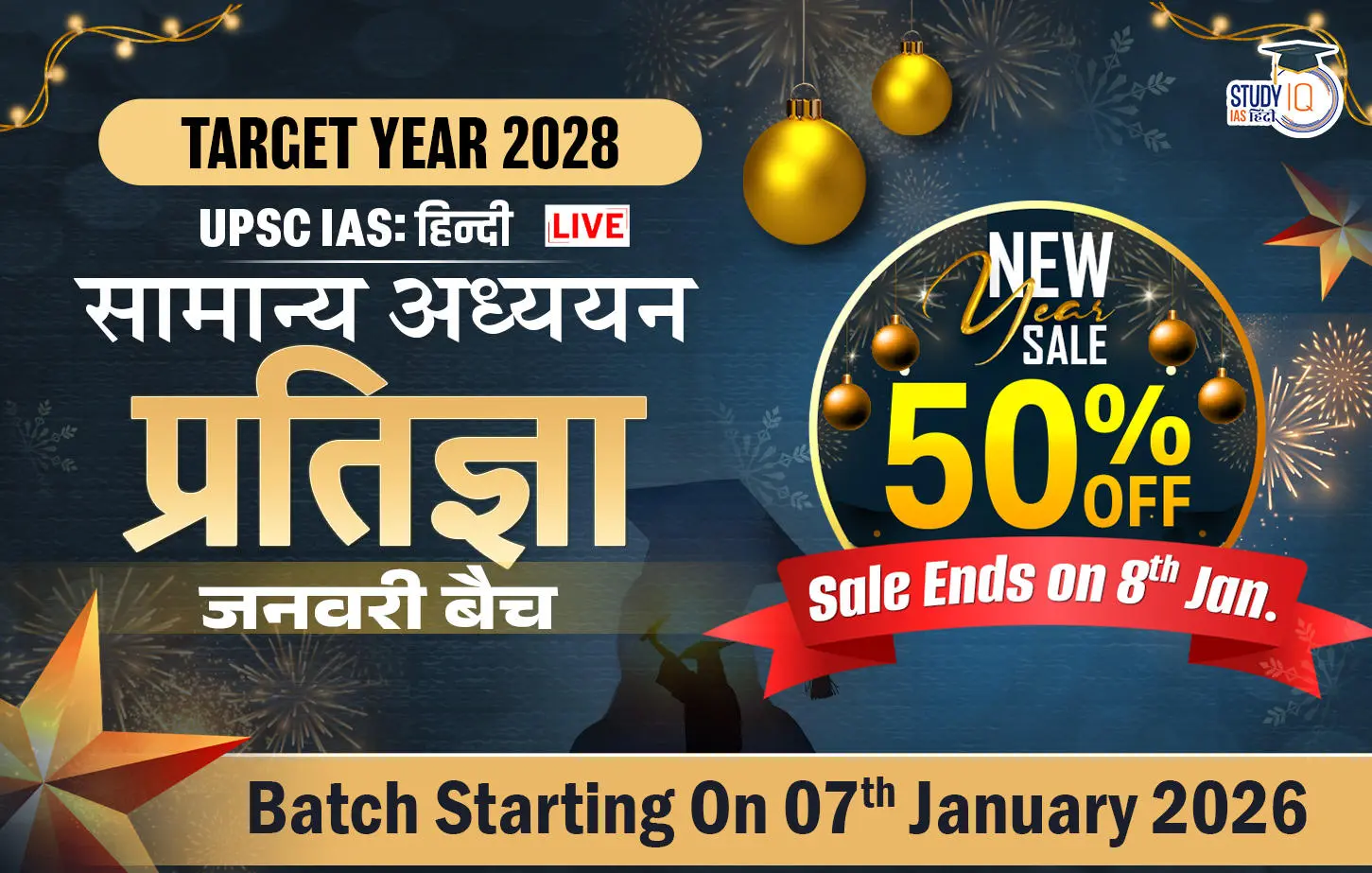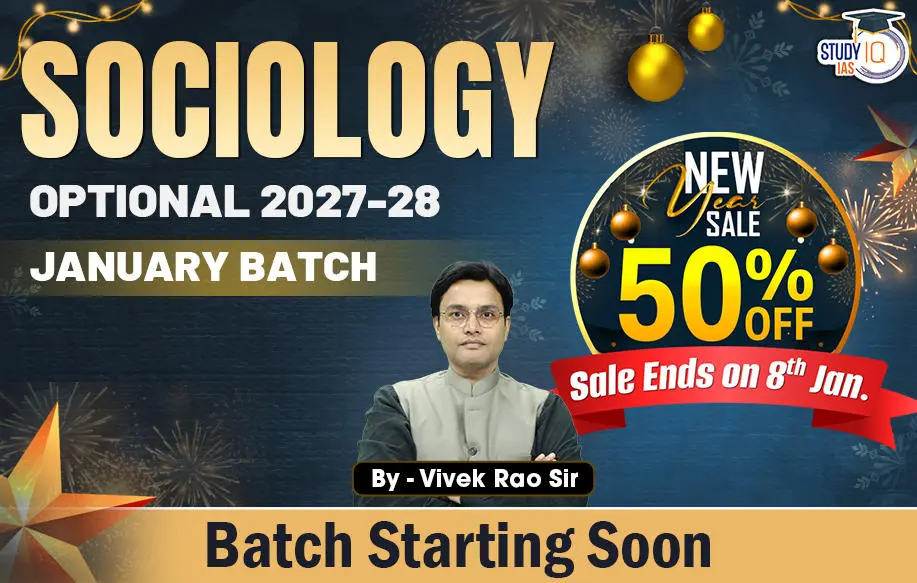Table of Contents
Context: Recently, Madras HC ruled that the Right of Children to Free and Compulsory Education (RTE) Act, 2009, applies to admissions to kindergarten.
About Right of Children to Free and Compulsory Education (RTE) Act, 2009
Genesis and Constitutional Amendments
Unnikrishnan vs. State of Andhra Pradesh (1993)
- The Supreme court declared education as a fundamental right, deriving from Article 21 (Right to Life) of the Indian Constitution.
- The court mandated free education for all children until they reach the age of 14.
Constitution (86th Amendment) Act, 2002
- Inserted new Article 21A into the Constitution, which states, “The State shall provide free and compulsory education to all children of the age of six to fourteen years in such manner as the State may by law determine.”
- Substituted a new article for Article 45, focusing on the state’s endeavour to provide early childhood care and education for all children until they complete the age of six years.
- Added a clause to Article 51A, making it a duty of every parent or guardian to provide opportunities for education to their child or ward between the ages of six and fourteen years.
Provisions of RTE ACT
- The Right to Education Act (RTE) was enacted to enforce Article 21A of the Indian Constitution.
- Education for All: Ensures that all children between the ages of 6 and 14 years receive free and compulsory education at a neighbourhood school.
- Age-Appropriate Enrollment: Children over 6 years old who have not been enrolled in school or have dropped out can be enrolled in an appropriate class for their age.
- Continuation Beyond Age 14: Elementary education remains free until completion, even if the child exceeds 14 years of age.
- No Detention Policy: No child can be held back, expelled, or required to pass a board examination until the completion of elementary education.
Responsibilities of Schools and Teachers
- Government and Aided Schools: These schools must provide free and compulsory education to all admitted children.
- Aided schools must ensure free education proportional to the aid received, with a minimum of 25% free education.
- Prohibition on Private Tuitions: Teachers are prohibited from conducting private tuitions and from engaging in non-teaching duties, except for specific duties like census work, disaster relief efforts, and election duties.
- School Management Committees (SMC): Each school must form an SMC consisting of local authority officials, parents, guardians, and teachers.
- The SMC is responsible for monitoring the use of government grants and preparing a school development plan.
Responsibilities of Appropriate Governments
- Central Government:
- Establish a National Advisory Council to guide implementation of the Act.
- Develop a national curriculum framework.
- Set and enforce standards for teacher training.
- State Government:
- Provide free and compulsory elementary education for children aged 6-14.
- Guarantee admission, attendance, and completion of elementary education.
- Ensure availability of nearby schools.
- Establish a system for handling complaints.
Oversight and Protection
- The National Commission for Protection of Child Rights monitors child rights and can investigate complaints.
- States may form their own State Commission for Protection of Child Rights.
Financial Responsibilities
- Central and state governments share the financial burden.
- Central government can request the Finance Commission to allocate more funds to states for implementing the Act.
| Amendments to RTE Act |
2012 amendment
2019 amendment
|
Exemption
Sections 1(4) and 1(5) of the 2009 Act:
- Section 1(5): “Nothing in this Act shall apply to madrasas, Vedic pathshalas, and educational institutions primarily imparting religious instruction.”
- Section 1(4): “Subject to Articles 29 and 30 of the Constitution, the provisions of this Act confer rights on children to free and compulsory education.”
Constitutional Provisions Regarding Minority Educational Institutions
Article 29 and 30:
- Secures the rights of minorities and minority-run institutions.
- Article 30(1): “All minorities, whether based on religion or language, have the right to establish and administer educational institutions of their choice.”
- Majority communities can establish and administer educational institutions but without the special rights under Article 30(1)(a).
Special rights of religious minority institutions:
- Article 15(5): MEIs are not subject to reservation policies.
- Minority schools are exempt from the RTE Act. The Supreme Court’s Pramati judgement (2014) made the entire RTE Act inapplicable to minority schools.
- In the Stephen’s vs Delhi University case (1992), the Supreme Court ruled that MEIs can reserve 50% of seats for minorities.
- In the TMA Pai & others vs State of Karnataka & Others case (2002), the Supreme Court ruled that MEIs can have a separate, fair, transparent, and merit-based admission process and fee structure, but should not charge capitation fees.
What are the Issues?
- Infrastructure Deficiencies: Many schools lack basic infrastructure such as adequate classrooms, toilets, and drinking water facilities.
- Teacher Shortages: There is a significant shortage of qualified teachers, which affects the quality of education.
- Quality of Education: Despite increased enrolment, learning outcomes remain poor. The focus has often been on enrolment rather than the quality of education.
- Financial Constraints: Insufficient funding and delays in fund disbursement have hampered the effective implementation of the Act.
- Awareness and Accessibility: Lack of awareness about the provisions of the RTE Act among parents and communities, and difficulties in obtaining necessary certificates, have limited its reach.
- 25% Reservation in Private Schools: The implementation of the 25% reservation for economically weaker sections in private schools has been inconsistent, with many schools not complying with this provision.
- Monitoring and Accountability: There are gaps in monitoring and accountability mechanisms, leading to issues in the enforcement of the Act.
- Inclusivity: Ensuring inclusivity, particularly for children with disabilities and those from marginalised communities, remains a challenge.
Way Forward
- Enhanced Funding: Increase budget allocation for education to ensure adequate resources for infrastructure, teacher salaries, and learning materials.
- Infrastructure Development: Invest in building and upgrading school infrastructure, including classrooms, toilets, and drinking water facilities.
- Teacher Recruitment and Training: Address teacher shortages by recruiting more qualified teachers and providing ongoing professional development to improve teaching quality.
- Focus on Learning Outcomes: Shift the focus from mere enrollment to improving learning outcomes. Implement regular assessments and remedial programs to support students who are falling behind.
- Use of Technology: Leverage technology to enhance teaching and learning. This includes providing digital resources, training teachers in digital pedagogy, and ensuring students have access to necessary devices and internet connectivity.


 White-Bellied Heron: Habitat, Conservati...
White-Bellied Heron: Habitat, Conservati...
 Salal Reservoir: Location, River, Capaci...
Salal Reservoir: Location, River, Capaci...
 US Intervention in Venezuela and the Mon...
US Intervention in Venezuela and the Mon...

























